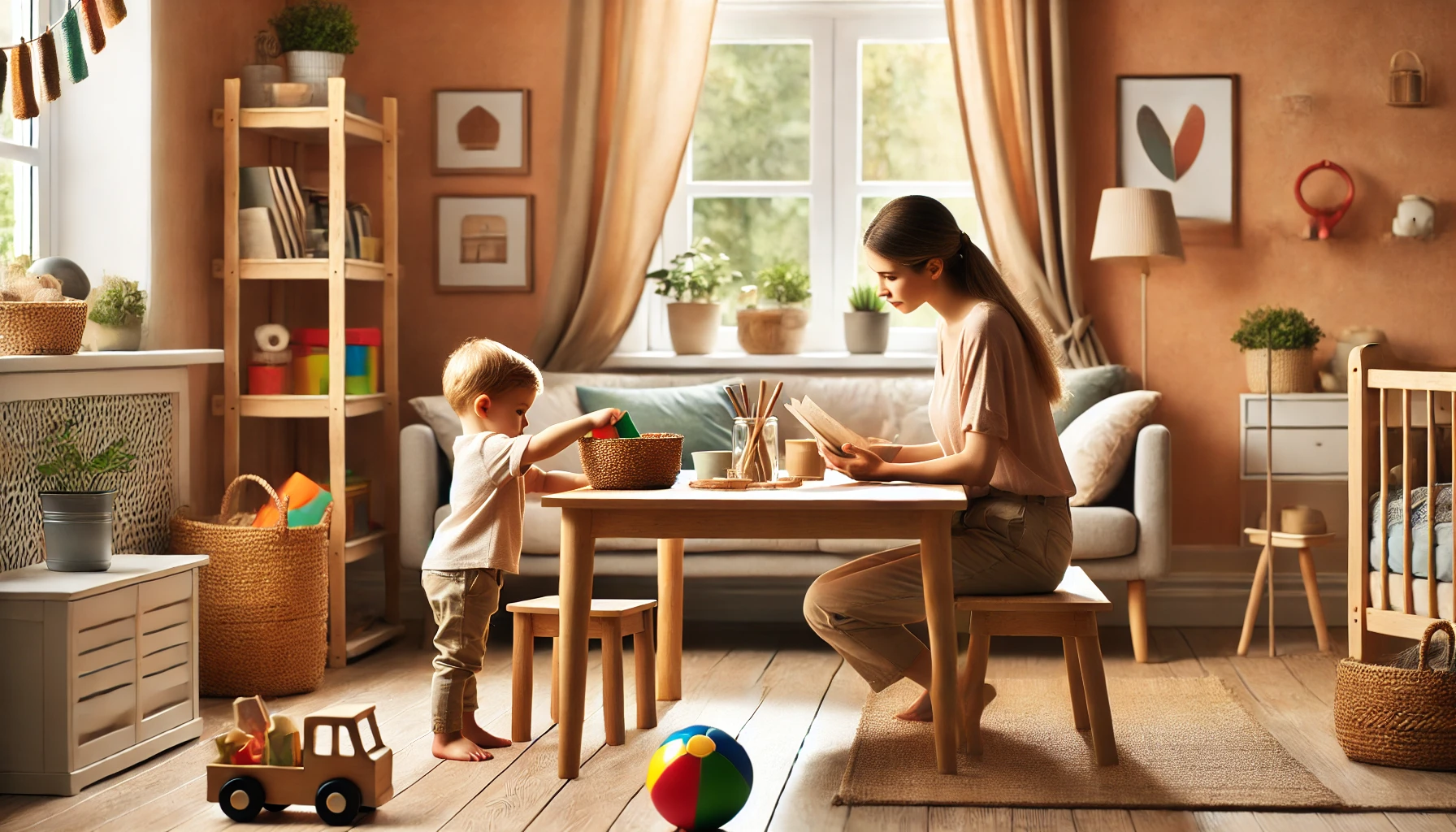How to Teach Responsibility to Young Children at Home
Teaching responsibility to young children helps them develop independence, accountability, and life skills. By giving children age-appropriate tasks and encouraging good habits, parents can build a strong foundation for future success. In this article, we’ll explore simple ways to teach responsibility through daily routines, chores, and decision-making opportunities.
Why Teaching Responsibility is Important
- Builds independence – Encourages children to take care of themselves and their belongings.
- Develops problem-solving skills – Teaches kids how to handle challenges and complete tasks.
- Encourages accountability – Helps children understand the consequences of their actions.
- Fosters confidence – Completing tasks successfully boosts self-esteem.
- Prepares for future responsibilities – Lays the groundwork for school, work, and relationships.
1. Give Age-Appropriate Chores
Simple household tasks help children learn responsibility and teamwork.
Activity Idea:
- Toddlers: Put away toys, wipe small spills, throw trash in the bin.
- Preschoolers: Set the table, feed pets, help water plants.
- Older children: Make their bed, organize their belongings, help with laundry.
What Kids Learn:
- Sense of contribution
- Following instructions
- Time management
2. Establish a Daily Routine
Consistent routines teach responsibility by helping children understand expectations.
Activity Idea:
- Create a visual schedule with pictures or checklists.
- Encourage children to brush their teeth, get dressed, and prepare their backpacks on their own.
- Praise them for completing their routine without reminders.
What Kids Learn:
- Self-discipline
- Time management
- Organization skills
3. Let Kids Make Choices and Decisions
Allowing children to make small decisions gives them a sense of ownership and responsibility.
Activity Idea:
- Let them choose between two outfits or snacks.
- Involve them in planning family activities.
- Encourage them to decide how to organize their play area.
What Kids Learn:
- Decision-making skills
- Problem-solving
- Confidence in their choices
4. Teach the Value of Completing Tasks
Encouraging kids to finish what they start helps them develop perseverance and accountability.
Activity Idea:
- If they start a puzzle, encourage them to finish it before moving on to another activity.
- Teach them to put away their toys before getting new ones.
- Show them how completing tasks benefits them and others.
What Kids Learn:
- Commitment and persistence
- Understanding of responsibility
- Self-motivation
5. Introduce the Concept of Consequences
Helping children understand cause and effect teaches them to take responsibility for their actions.
Activity Idea:
- If a child forgets to put their toy away, explain why it might get lost or broken.
- If they spill something, guide them to clean it up.
- Reinforce positive consequences, like how helping clean up makes the house nicer for everyone.
What Kids Learn:
- Accountability
- Problem-solving
- Cause and effect relationships
6. Encourage Helping Others
Teaching responsibility includes being responsible for helping others when needed.
Activity Idea:
- Assign “helping jobs” like assisting a younger sibling or carrying groceries.
- Involve them in family tasks like setting the table or folding laundry.
- Praise them for showing kindness and responsibility toward others.
What Kids Learn:
- Empathy and teamwork
- Importance of community responsibility
- Leadership skills
7. Be a Role Model for Responsibility
Children learn by observing the adults around them.
Activity Idea:
- Show responsibility by completing tasks on time and keeping promises.
- Talk about your responsibilities and how you manage them.
- Let children see how being responsible helps make life easier and more enjoyable.
What Kids Learn:
- Importance of leading by example
- Personal accountability
- Positive work ethic
8. Use Positive Reinforcement
Recognizing and rewarding responsible behavior encourages children to keep practicing.
Activity Idea:
- Praise their efforts with phrases like, “You did a great job cleaning up!”
- Use a reward chart for completing tasks, but focus on effort rather than perfection.
- Encourage self-reflection by asking, “How do you feel after helping?”
What Kids Learn:
- Self-motivation
- Pride in accomplishments
- Understanding of personal growth
Final Thoughts
Teaching responsibility at home helps children develop independence, accountability, and valuable life skills. By creating routines, involving children in decision-making, and reinforcing positive behavior, parents can build a strong foundation for responsible habits that will last a lifetime.
